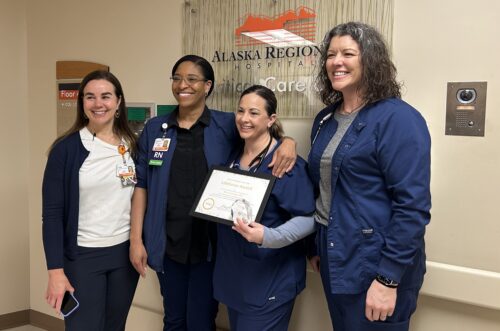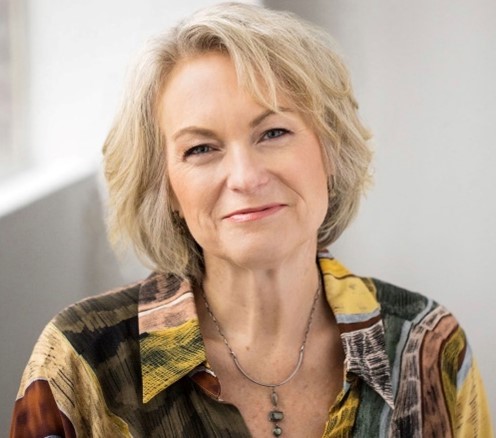We are proud to feature Laurie Brown, Chief Experience Officer, CHI Franciscan Health as our May “Leader in Donation”

CHI Franciscan Health is a health system serving the Seattle and Tacoma area, including seven full-service hospitals and many other clinics and specialty services. In 2017, CHI Franciscan Health had a total of 22 organ donors resulting in 63 lives saved through transplantation and 61 tissue donors resulting in over 7,500 grafts for transplant.
What does organ and tissue donation mean to you?
I think of it as a gift. Which goes back to when I was a brand new nurse, I actually worked at Sacred Heart in Spokane, and I remember being part of the donation committee. Just thinking about the gift of life, and I think of working in tissue donation as a gift.
Key point: Many healthcare providers see organ and tissue donation as an enormous show of generosity by either the patient or their family and can find this motivating in difficult cases.
Why has your donation program been so successful? What drives you to make donation a priority in your hospitals?
I think donation is successful in our organization due to our leaders and staff at each of our entities. They are really the ones that make this happen. They are passionate about it, and they see the benefit. Truthfully, one of the things we really appreciate are the letters we get back from LifeCenter that gives very nice feedback on the outcomes of the successful donation. We often read those as a reflection at the beginning of a meeting to reinforce donation. I think it’s part of who we are in terms of being in mind, body, and spirit. It’s a comprehensive approach to care. When you’re helping your community there’s that additional benefit, you’re helping a family through a troubling time, an awful time; but then you’re helping someone else in a different way through that same journey. It’s the right thing to do!
Best Practice: Hospitals who find ways to ensure their staff recognizes the benefit of donation to both the donor family and recipients see staff with greater investment in the donation program and its success.
What makes you most proud of working for CHI and why?
A lot of it is the passion our workforce, our employees & our medical staff, have for the mission, which is all about serving our communities. In the south Puget Sound, we cover a wide area; we’ve been caring for all those communities over time; people are passionate about the work they do in serving their community. As an organization we focus on safety, healing and caring for our patients and community, but also on our employees and providers; so, it kind of comes full circle. I find that working for a nonprofit that’s mission-driven is very rewarding.
What is unique about healthcare in your region?
The growing population in the south Puget Sound. It’s an interesting combination of urban and rural areas to serve. I would say from a challenging perspective the rise in patients with mental illness and those with chemical/substance abuse. With the volumes and the lack of resources for those conditions, that continues to be a struggle. We are partnering with MultiCare on opening a behavioral health hospital which will help.
One of the differences in Washington state is being a certificate of need state, we don’t have as many acute care beds per thousand that other parts of the country do. I think that does create some capacity issues, particularly up and down the I-5 corridor, which has been a real challenge, especially during flu season this year.
I would also say that it is gratifying to partner with so many great health systems, providers and organizations in this area. It is very collaborative and I think rather unique to Washington State.
What do you love about living in Tacoma?
I have lived in the South Puget Sound all my life. I love the water, and the mountains. I like that Tacoma is a city, but has kind of a small town feel to it. You are close to larger city activities as well as a short drive to more rural areas.





